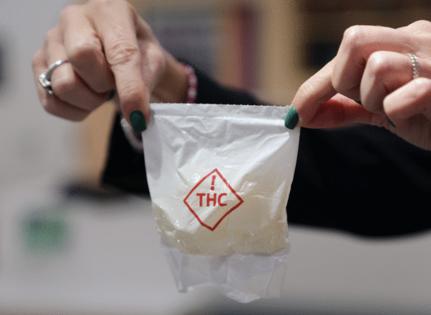After months of delay, Florida issues overdue medical marijuana licenses
Published in News & Features
TALLAHASSEE, Fla. — In Florida, 28 companies have controlled the medical marijuana market.
Now, after months of delay, Florida is allowing another 22 companies to join them.
For years, the marketplace has been dominated and controlled at all levels by a tight cluster of companies — only about two thirds of Florida’s licensed companies have storefronts — that stand to make enormous profits off of Florida’s near 1 million medical marijuana patients.
As Gov. Ron DeSantis campaigned against Amendment 3, which would have allowed adults to buy and use marijuana recreationally, he and his allies talked about “corporate greed” and criticized the amendment for only benefitting a handful of companies. The amendment failed to pass earlier this month.
What DeSantis didn’t mention was that Florida’s law governing medical marijuana requires the state to nearly double the marketplace beyond where it is now, increasing competition as more patients enroll. For months, the state had 22 applications for new medical marijuana treatment centers waiting to be awarded.
This week, Florida announced which 22 companies were awarded the licenses, ending 19 months of waiting.
The state accepted applications in April 2023, and 74 companies threw their names in. Even after the Office of Medical Marijuana Use director told the Legislature licenses might be issued by this summer, the process lagged.
“Once we knew that Amendment 3 was going to be on the ballot, everybody in the industry just traveled under the assumption that we weren’t going to learn anything before the election,” said cannabis attorney Jonathan Robbins.
Delays in granting licenses in Florida has become the norm for the state, Robbins said. The law requires that for every additional 100,000 active patients, the state should issue four additional licenses within six months. Florida currently has about 887,000 licensed patients, but spent years without opening up a broad new application process.
“They’re very much out of compliance and have been for many years,” Robbins said.
Jae Williams, a spokesperson for the Department of Health, said the department had to do its due diligence in reviewing all applications.
Williams also said that the process is competitive and state officials must ensure that the “highest scored applicants are suited to provide patients with the highest quality product.”
Florida has, though, gone through the application process and granted licenses specifically to Black farmers to grow medical marijuana since 2015, born out of litigation called the “Pigford” cases where the farmers alleged they were discriminated against.
The Florida Legislature has passed measures to ensure that Black farmers have some licenses set aside for them. As a result, in November the health department awarded a license to three Black farmer applicants who had previously been denied in the initial application process.
Sally Kent Peebles, a cannabis attorney, said she doesn’t think there’s anything nefarious behind the state’s slow pace in reviewing applications. But she said the long waiting period has been expensive for those who applied — and said that no other state’s medical marijuana application has taken this long.
In order to put forward a competitive bid, a company needed enough land to grow medical pot and be able to pay a lease for retail outlets, she said. Some applicants have been paying tens of thousands of dollars per month to hold onto possible dispensary locations, only to sit and wait.
And because it took the state a year and a half to grade the applications, the companies that won may have changes to their plan, she said.
Company teams, including the required medical director, may have been reshuffled as people naturally come and go, and it’s unclear if the state will punish applicants for those changes, she said.
Even with the state issuing the licenses, it could be months and months before retail stores for consumers arrive. People will likely sue over the licenses, which could hold the whole process up.
Richard Blau, the head of regulated products at the law firm GrayRobinson, said when the state anticipates litigation, regulators take extra time and are extra prudent.
Blau, who notes that his firm has close ties with the executive and legislative branch, said that the reason the state took a long time is a matter of opinion. Marijuana industry observers say it was an intentional delay because the administration doesn’t support any expansion of available pot.
But he said there’s also the view of the government officials, who may feel rushing into anything too quickly with the unknowns around marijuana is dangerous.
“I acknowledge plenty of arguments that that the system set up by Florida really does benefit a few and prejudice many,” Blau said. “It could be a more efficient delivery system than it currently exists, it could be a more affordable system than currently exists. But I also recognize the argument that, hey, if we don’t do this right it could be terribly unsafe.”
Josephine Cannella-Krehl, a member of the grassroots Florida Cannabis Action Network’s legislative team, said expanding the market will drive up competition, which will be good for the state’s medical consumers.
For Cannella-Krehl, she said the long waiting period wasn’t a surprise. She expected that the process would become tied up in litigation and other bureaucratic delays.
In the meantime, she said many of the state’s medical marijuana patients “don’t even really know that they are owed 22 more options.”
©2024 Tampa Bay Times. Visit at tampabay.com. Distributed by Tribune Content Agency, LLC.







Comments